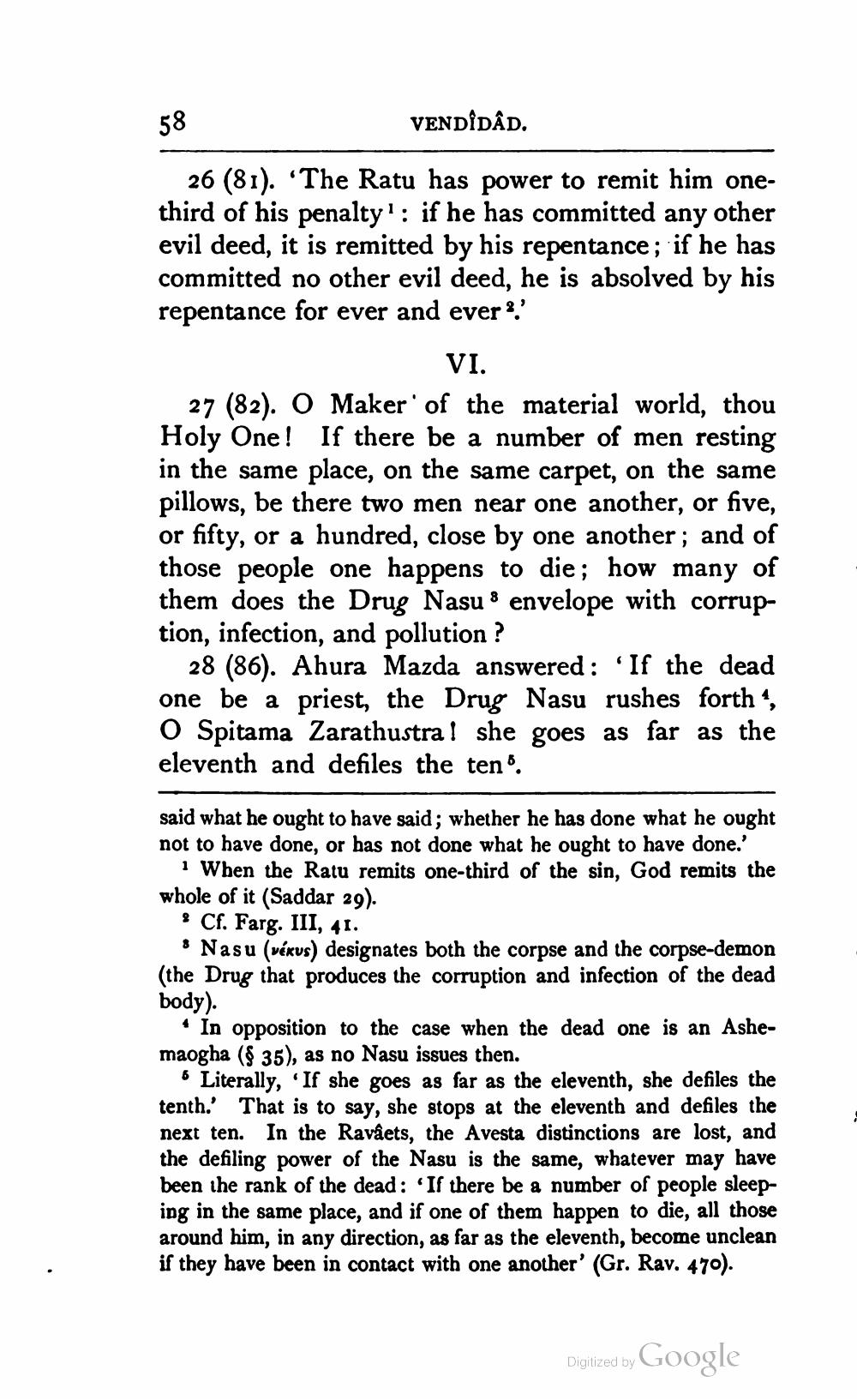________________
58
VENDIDAD.
26 (81). "The Ratu has power to remit him onethird of his penalty': if he has committed any other evil deed, it is remitted by his repentance; if he has committed no other evil deed, he is absolved by his repentance for ever and ever?'
VI. 27 (82). O Maker' of the material world, thou Holy One! If there be a number of men resting in the same place, on the same carpet, on the same pillows, be there two men near one another, or five, or fifty, or a hundred, close by one another; and of those people one happens to die; how many of them does the Drug Nasu 8 envelope with corruption, infection, and pollution ?
28 (86). Ahura Mazda answered: 'If the dead one be a priest, the Drug Nasu rushes forth, O Spitama Zarathustra ! she goes as far as the eleventh and defiles the teno.
said what he ought to have said; whether he has done what he ought not to have done, or has not done what he ought to have done.'
1 When the Ratu remits one-third of the sin, God remits the whole of it (Saddar 29).
Cf. Farg. III, 41. * Nasu (vérus) designates both the corpse and the corpse-demon (the Drug that produces the corruption and infection of the dead body).
• In opposition to the case when the dead one is an Ashemaogha (8 35), as no Nasu issues then.
Literally, If she goes as far as the eleventh, she defiles the tenth.' That is to say, she stops at the eleventh and defiles the next ten. In the Ravaets, the Avesta distinctions are lost, and the defiling power of the Nasu is the same, whatever may have been the rank of the dead: If there be a number of people sleeping in the same place, and if one of them happen to die, all those around him, in any direction, as far as the eleventh, become unclean if they have been in contact with one another' (Gr. Rav. 470).
Digitized by Google




